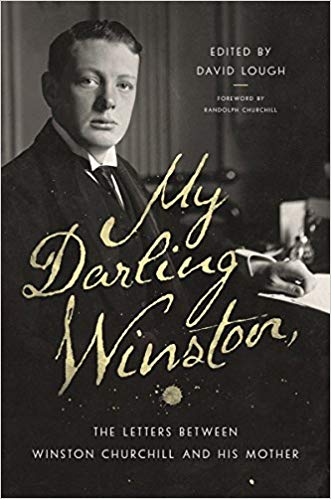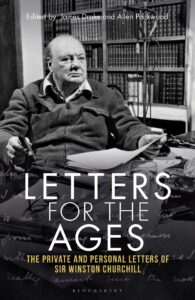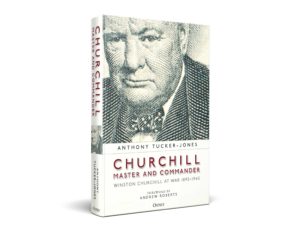Finest Hour 183
Books, Arts, & Curiosities – Maternal Love

May 15, 2019
Finest Hour 183, First Quarter 2019
Page 42
Review by Zoe Colbeck
Zoe Colbeck is the General Manager for the National Trust at Chartwell.
David Lough, ed., My Darling Winston: The Letters Between Winston Churchill and His Mother, Pegasus Books, 2018, 598 pages, $35. ISBN 978–1681778822
This is the first time that the letters between Lady Randolph Churchill and her son Winston have been gathered into a book. Mother and son are said to have corresponded more than a thousand times. David Lough, whose previous book No More Champagne (2015) provided a meticulous examination of Winston Churchill’s finances, has unearthed and transcribed nearly 800 of these letters and selected 450 for inclusion in this fascinating book. The result not only tells us about the relationship between Winston and the former Jennie Jerome over the course of their shared lives and how it changed; it also illustrates the upper class life which they lived.
Lough observes that Winston’s letters have “great passages of self-analysis that make his correspondence with his mother such a valuable source of insight into his character.” It is fascinating to be able to see into Churchill’s mind this way, and I was really surprised by some of what I read. He realised that his education had been utilitarian: focused on getting him into the army. To reach his goal of becoming a politician, Lt. Churchill would have to increase his knowledge and read the books he would have learnt from had he gone to university. To this end he had his mother send him many books, as well as the records of the House of Commons, so that he could learn more about how Parliament worked.
Money is a constant theme of the letters, and Churchill realises in 1898 that both he and his mother are very extravagant. From new ball gowns to polo ponies, Jennie and Winston both needed to be more careful with money. Neither of them managed to do this, though!
There is a sense in his letters that Churchill really cared about the people he met in his life, such as when he attended the funeral of his nanny Mrs. Everest or when he sent a telegram from Africa to Jennie when his manservant died so that his mother could inform the man’s widow in person. Churchill’s observations about how brutally people were killed in battles and those of how people in Egypt had better living conditions than the people in his Manchester constituency show a great degree of empathy.
The relationship between Churchill and his mother naturally changed over time. At the beginning, young Winston was begging Jennie to visit him at school. In order to make it easier for her, he even planned the trains she would need to take. Lord Randolph’s letters to his son calling him a wastrel are well known, and it is sad to see Lady Randolph was hard on young Winston too in letters, calling him lazy and untidy. Yet, at seventeen, Winston sent a lovely letter to his mother about winning a fencing medal, a prize still on display at Chartwell. After that, once her son had joined the army and started writing for the newspapers as well as publishing books, Jennie became a great support with advice and in the arranging of contracts.
Young Winston was really sad whenever there was a week in which his mother did not write. In the letters, you can see what a strong bond they had. In 1900, however, when Jennie remarried—and to a man nearly the same age as her son—the relationship changed. After this Churchill seldom asked again for his mother’s approval or advice. He does, however, still get her support with electoral campaigning. She even cut her honeymoon short to help and assist in organising his staff and home decoration. Finally, once Churchill himself married, the relationship with his mother diminished further, although the two always remained close.
There are perhaps a few too many of the early letters where Winston is continuously asking for money or for his mother to come and visit, but I really enjoyed the book. Deciphering the letters in order to transcribe them was no easy task, but the results provide some interesting surprises. I was delighted to discover that Winston’s relationship with his father was not always bad and that there was even a six-month period in 1883–84 when they got along better than ever. Lough has given us a very accessible historical resource that provides a unique insight into the lives of two very fascinating people.
Subscribe
WANT MORE?
Get the Churchill Bulletin delivered to your inbox once a month.






